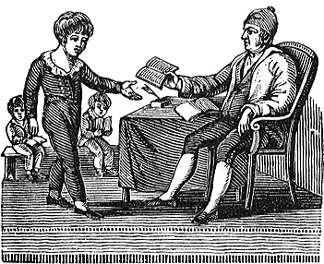
What is an error in English?
The concept of language errors is a fuzzy one. I'll leave to linguists the
technical definitions. Here we're concerned only with deviations from the
standard use of English as judged by sophisticated users such as professional
writers, editors, teachers, and literate executives and personnel officers. The
aim of this site is to help you avoid low grades, lost employment opportunities,
lost business, and titters of amusement at the way you write or speak.
But isn't one person's mistake another's standard usage?
Often enough, but if your standard usage causes other people to consider you stupid or ignorant, you may want to consider changing it. You have the right to express yourself in any manner you please, but if you wish to communicate effectively, you should use nonstandard English only when you intend to rather than falling into it because you don't know any better.
I'm learning English as a second language. Will this site help me improve my English?
Very likely, though it's really aimed at the most common errors of native speakers. The errors others make in English differ according to the characteristics of their first languages. Speakers of other languages tend to make some specific errors that are uncommon among native speakers, so you may also want to consult sites dealing specifically with English as a second
language (see
http://www.cln.org/subjects/esl_cur.html).
Aren't some of these points awfully picky?
This is a relative matter. One person's gaffe is another's peccadillo. Some common complaints about usage strike me as too persnickety, but I'm just covering mistakes in English that happen to bother me. Feel free to create your own page listing your own pet peeves; but I welcome suggestions for additions to these pages. First, read the Commonly Made Suggestions page, and if you still want to write me, please do so, at brians@wsu.edu.
What gives you the right to say what's an error in English?
I could take the easy way out and say I'm a professor of English and do this sort of thing for a living. True, but my Ph.D. is in comparative literature, not composition or linguistics, and I teach courses in the history of ideas rather than language as such. But I admire good writing and try to encourage it in my students.
Why do you discuss mainly American usage?
Because I'm an American, my students are mostly American, most English-speaking Web users are Americans, and American English is quickly becoming an international standard. I am slowly reworking the site to take note of American deviations from standard British practice. However, the job is complicated by the fact that Canadians, Australians, and many others often follow patterns somewhere between the two. If the standard usage where you are differs from what is described here, tell me about it; and if I think it's important to do so, I'll note that fact. Meanwhile, just assume that this site is primarily about American English. If you feel tempted to argue with me, click here first.
But you made a mistake yourself!
We all do, from time to time. If you think you've found an error in my own writing, first read the "Commonly Made Suggestions" page, then write me if you still think I need correcting. I've changed many aspects of these pages in response to such mail; even if I disagree with you, I try to do so politely. If you write me, please don't call me "Brian." My given name is Paul.

Paul Brians
Professor of English
Washington State University
Pullman, WA 99164-5020
Paul Brians' home page containing links to many other useful resources.
Recommended as an "Incredibly Useful Site" in  Magazine, July, 1997, pp. 82-83 and cited as a Yahoo "Site of the Week." It has also been recommended in the pages of The Weekend Australian, The Bangkok Post, the Indianapolis Star-Tribune, the Los Angeles Times (a David Colker column widely reprinted around the U.S.), the Seattle Times, Ziff-Davis' Inside the Internet, newsletter, and The Web magazine.
Magazine, July, 1997, pp. 82-83 and cited as a Yahoo "Site of the Week." It has also been recommended in the pages of The Weekend Australian, The Bangkok Post, the Indianapolis Star-Tribune, the Los Angeles Times (a David Colker column widely reprinted around the U.S.), the Seattle Times, Ziff-Davis' Inside the Internet, newsletter, and The Web magazine.
Also recommended by
In its first year this page was accessed more than 60,000 times.
Number of hits since
January 5, 1998. (This counter unfortunately displays a very different number depending on whether you have connected at the new address (www.wsu.edu/~brians/errors/) or the old (www.wsu.edu:8080/~brians/errors/). The old counter reads about four times as many hits as the new.)